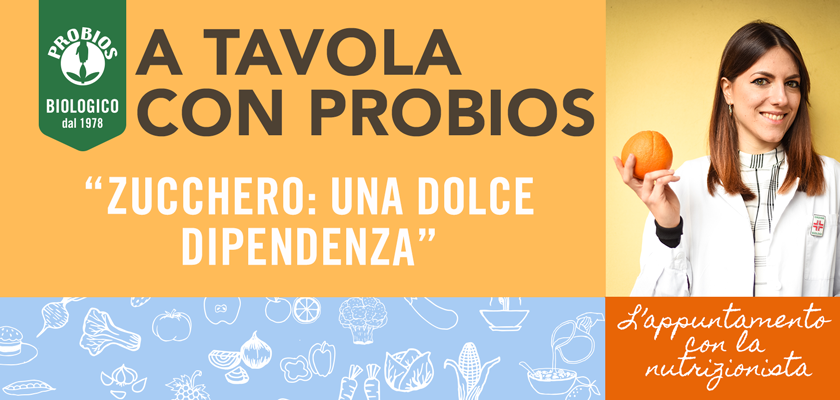
We all know the sugar effects on our body: simple sugar modifies the signals of appetite and satiety, stimulating hunger in the short term, with an increase in generalized inflammation and fat accumulation. However, we have become so accostumed to use sugar - both refined and brown - to sweeten coffee, drinks and biscuits, which for us has become a "natural" taste. And when we taste the authentic flavors of these foods we are amazed! We know the feeling of "chemical" hunger, yet we find it difficult to give up with that sweet taste.
Why can't we do without sugar?
The search for sugar is inherent in man. We have some hormones (like NYP, or Neuropeptide Y) that stimulate the search for sweet substances, mindful of the fact that in the Paleolithic the opportunities to take sugary substances were very few and sugars were essential for survival. But today the times have changed: the availability of sugar and added sugars is there - and it’s too much - and we know all the risks of their abuse: obesity, metabolic syndrome and cardiovascular diseases. In short, we went beyond the old conception that sugar was used by children to study better!
How to overcome this "sweet" addiction?
Who doesn’t like to eat ice cream, the croissant of the favorite pastry shop or the cake made by grandmother according to tradition...! We can indulge in a sweet cuddle every now and then, it’s not a mortal sin. The problems arise from the daily surplus of sugars that we give to our body. How then can we get out of the loop of unnecessary sweetening? Here are my three tips:
- Make positive choices every day: a hearty and complete breakfast, the correct use of proteins, healthy fats, fiber and constantly practice your favorite physical activity. These choices will reduce the eager search for sugars;
- Live your "sweet" as a moment of sociality and occasional party during the week;
- Reactivate the palate to the authentic taste of food, removing, day after day, the sugar teaspoons from coffee and initially replacing them with natural sweeteners such as erythritol: a polyalcohol produced by the fermentation of sugars naturally present in foods of plant origin which, unlike of sugar, can help us control blood sugar, insulin levels and weight because it isn’t related to increases in blood glucose levels.
In brief, sweetening must be used consciously. Sugar is harmful to our health when used daily and in excess. If instead it’s used consciously and wisely, you can take it in peace, knowing that this is a special occasion. In the event that sweetening elimination was too difficult if carried out in a single stroke, we could rely on an initial help from Nature through natural sweeteners such as erythritol, to get used to the true and ancient flavors of what we bring on the table.
Dott.ssa Benedetta Belli - Nutrizionista Probios





